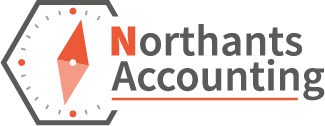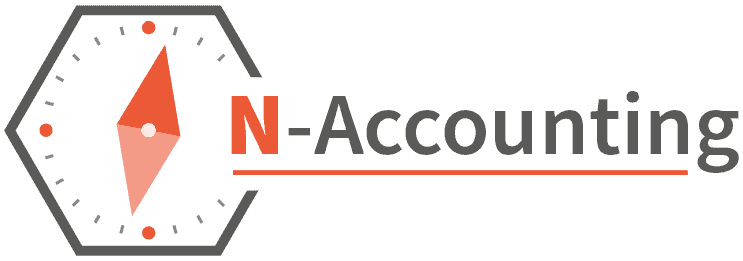NORTHAMPTON BUSINESS CLIMATE & ACCOUNTING
Northampton has been ranked as one of the best towns to start a business in the UK over the past 5 years over and over again. Research reveals that Northampton has 43 new businesses per 10,000 population i.e. above London at 42 and well beyond the UK average of 12.
The town has this status because of its central location within the UK, its close proximity to many of the UK’s main economic hubs, an excellent transport system and local efforts to entice business growth. Although, all these reasons make Northampton a very favourable place to start a business but you’ll still hear news of a business closing down now and then. Now you may question why are businesses in Northampton closing down despite its favourable business atmosphere? Here is the simple answer: Regardless of the location, 20% of the businesses close down in the very first year and fifty per cent within the first five years due to poor planning and research.
“There are many benefits of being based in Northampton. First of all, it’s got great transport links so it’s very well located. But secondly, and more importantly, I think it’s got a vibrant business community here. We’ve got a lot of inward investment, good cultural development coming through the town, and a strong sense of history and heritage that plays well with what Carlsberg’s purpose stands for.”
Julian Momen – Chief Executive of Carlsberg UK
If you are a small business owner in Northampton, you need to realise that location-wise you are in an ideal place in the UK, but there are certain business practices that you need to follow to succeed. In all my years of professional experience, I’ve interacted with more small business owners than I can keep count of. One thing that almost all of them find very difficult in running a business is managing the finances/accounting side of the business. Sorting out the receipts, invoices, VAT returns and other accounting documents can be daunting, especially if you are not good with numbers.
The good news is that you don’t necessarily have to crunch the numbers yourself. But to be successful as a business, you do need to familiarise yourself with fundamental accounting practices and make sure that your business is strictly in line with these practices. Here are 7 accounting practices that can set your business on the right track of growth;
- Tracking Expenses
- Keeping personal and business expenses separate
- Using accounting software or hiring an accountant to do it for you
- Bookkeeping
- Inventory Records
- Invoice Check
- Financial Planning & Forecast
Let’s have a look at these more details.
1.TRACKING EXPENSES
We all know that starting a business can be expensive and often far more expensive than most people estimate before starting. So, as a small business owner, you must make sure that every penny that you invest in your business must go to good use. This doesn’t mean just allocating strict budgets for all activities, but to keep track of all expenses. Keeping a record of business spending not only helps us see which segment of the business is consuming most/least budget but also helps us in future financial planning and other financial matters such as;
- Monitoring business growth
- Building financial statements
- Keeping track of deductible expenses
- Preparing tax returns
- Supporting tax return claims
You should start tracking your business expenses from the very start, even if you don’t have a proper setup yet, even if you are just in the research and development stage. Most small businesses, especially those in partnership, do not start tracking the expenses until the business operations formally begin. This is a common mistake that leads to letting a considerable amount of business investment go unaccounted. Let me tell you guys about these 5 common expenses that you must keep track of;
- Meetings & Meals – Most small business owners, that do not have a proper office setup conduct meetings in a café/restaurant, while this is a great idea, make sure you document it, keep the receipt, and write down short minutes of meeting along to remember the purpose of the meeting.
- Commute Cost – One of the benefits of owning a business in Northampton is that the transport links are second to none as it’s very centrally located, so the commute costs are generally less, however, you need to keep track of all the transport expenses, a daily log is probably the best way to document it. Also, whenever you use your personal commute for business, calculate the expense and document it too.
- Travel Cost – A lot of business owners try to claim personal trips as business trips when filing taxes. While this may appear like a tempting idea, just know that in the long run, it will only harm your business. The more transparent you are with numbers, the more clearly you can see the business progress and analyse the finances. So make sure to document all your businesses travel expenses as such.
- Gifts/ PR Packages –Just like all other expenses it is vital to document the gift/PR Packages expenses too, but it is slightly trickier than other expenses. Let me explain with an example; you gave a concert ticket as a gift to a client, but you will be accompanying him on the concert. In this situation, the expense will be documented as entertainment instead of a gift expense because the gift giver was also a beneficiary of the value. Make sure these details are jotted on the receipt.
- Home Office Expenses: Most small businesses start from home. One advantage of this besides keeping the overhead low is that you’ll be able to qualify for some tax breaks as you can claim some common home and business expenses as business costs such as internet connection, cell phone bills and place used as office space etc. But always keep the numbers transparent i.e. Expenses used partly for personal life and partly for business must reflect the mixed-use.
2.KEEPING PERSONAL AND BUSINESS EXPENSES SEPARATE
A common mistake that can cause you to lose track of your finances is not separating personal expenses from business expenses. A lot of home-based / small business owners think that they know where they are spending and so they can manage both finances from the same bank account. When you use a common account for all your finances, you are bound to flex budgets when and where it is needed. Keeping separate accounts not only helps you limit your business activities according to your budget but will also help you have a clear picture of your cash flow.
3.USING ACCOUNTING SOFTWARE OR HIRING AN ACCOUNTANT TO DO IT FOR YOU.
- Using Accounting Software
Accounting software helps you track your business finances such as; what you own, what are your expenditures, monthly spent, what others owe you etc. But beyond this basic bookkeeping feature, accounting software are now very detailed and offer a wide range of features, such as financial reports, annual financial insights etc., which can be very useful for your business.
There are hundreds of accounting software/apps now available in the market. The wide range of available applications makes it difficult for one to pick the right software /application for their business. I narrowed some options for you that you can pick and choose from depending on your business’s accounting needs;
- Xero – Ideal for small businesses because of its usability and affordability. Excellent Customer Support. Compatible with MAC.
- QuickBooks – Great alternative to Xero. Popular amongst the accountants and small businesses. Well suited for all business sizes.
- Zoho – Simple and affordable. Offers basic accounting features in a simplified form.
- Fresh Books– Offers very extensive invoicing tools. Maintains a balance between accounting and invoicing tools.
- Wave – Best free of cost software designed for small businesses.
If you want to explore more software options but aren’t sure what makes accounting software appropriate for a small business, read my last blog from November to know!
“Don’t ever let your business get ahead of the financial side of your business. Accounting, accounting, accounting. Know your numbers.”
Tilman J. Fertitta
- Hiring An Accountant
Unlike accounting software, with the human intelligence factor, an accountant can help you set realistic budgets/ financial benchmarks through proper planning and research. Adding someone to your team who can manage finances is always a good business investment. An accountant can help you with a variety of financial business matters such as;
- Mapping your business’s legal structure
- Business expansion planning
- Year-end financial statements
- Taxes
When considering hiring an accountant for your small business in Northampton, there are a few things that you need to carefully evaluate before making the final decision. Whether you are starting a new business venture or your business is well into the consistent growth stage, hiring an accountant to manage your finances is always a good idea. However, the size and nature of your business can play an important role in choosing the right type of accountant for you. Finding just the perfect person to handle your business finances can be a little trickier than you think. Due to the recent changes in accountancy and resistance towards these changes several accountancy professionals, the field is currently facing a significant skill shortage. Which means, not all accountants will be equipped with modern technical skills or be able to meet your business needs.
Whilst the core skills remain uniform amongst all professionals in the field, accountants have various sets of advanced skills, software experiences and niches. You just need to pick and choose the one that matches your business requirements. Here are a few basic qualities that you would need to see when hiring someone to manage the finances for you;
- Relevant Qualification & Experience
- Versatile Skillset
- A basic understanding or experience in your business industry
- Business Partnering mind-set
- Ability to effectively communicate numbers
Looking for a new accountant?
GET IN TOUCH
4.BOOKKEEPING
Bookkeeping is the foundation for any accounting activity. It is the process of recording day to day transactions, categorising them and reconciling bank statements. If you do not have this basic data, you cannot calculate or manage your business finances. This is exactly why you must make time for this activity every single day to avoid missing out on any financial transactions.
“You have to keep your books: how much money you made, how much money you’re spending, what you profited, and what you’re gonna need for expenses.”
Karen Civil
How Is It Done?
As intimidating as it may seem, with the digitalisation and advent of accounting software, bookkeeping has been really simplified. As mentioned above, there are numerous user-friendly & affordable accounting software available in the market that offer bookkeeping feature. But if you are not planning to use software for bookkeeping anytime soon, you need to choose which method of bookkeeping you will be using. There are two basic methods;
- Single-Entry Bookkeeping Single-entry bookkeeping is a very simple and straight forward method where one entry is made for each transaction in your books. This method works for micro-businesses that do not make transactions through credit card, have little inventory and don’t have a lot of assets.
- Double-Entry Bookkeeping Double-entry bookkeeping is comparatively detailed. As the name suggests it follows the principle that every transaction affects at least two accounts, and they are recorded as debits and credits. If your business has a credit line, this is a more effective bookkeeping method to use however; it can be time-consuming and a little difficult to do it on your own. You would either need to hire a bookkeeper or purchase software to maintain your books using the double-entry method. It might seem like an added cost, but since bookkeeping is the foundation of all your accounting activities, this is an investment worth making for your business.
“Accounting does not make corporate earnings or balance sheets more volatile. Accounting just increases the transparency of volatility in earnings.”
– Diane Garnic
5.INVENTORY RECORDS
90% of small businesses in Northampton work on a tight budget and with minimum resources. In this scenario, your business spending must be well accounted for. To avoid theft/careless use of goods, it is always a good idea to implement proper inventory controls such as;
- Monitoring goods usage
- Regularly conducting inventory audits
- Allowing limited access to the inventory
Most accounting software come with an inventory management feature, this can help you monitor your inventory more effectively & accurately. Even if you don’t want to invest in accounting software, inventory management software is also available separately which is probably less pricey.
6.INVOICE CHECK
As a small business owner, you may try your best to make timely payments and maintain goodwill but you can’t expect to be reciprocated in the same way. The companies and customers you work with might delay payments which can in turn adversely affect you and restrict your cash flow.
Smooth cash flow depends on customers making payments on time. Payment delays can lead to serious problems for your company, especially when you’re a small business and don’t have a lot of money in the reserve and are likely to be depending on payments from your customers to cover your expenses – that are expected to be met on time! Delays in the inflow of money can lead to unarranged overdraft charges, negatively impact your credit score and damage your credibility with your service providers.
To avoid such issues, you need to decide favourable terms and conditions in your invoices and actively follow up with your clients with friendly reminders as the deadline approaches. You can also offer early-bird discounts to your clients to encourage timely payments. Facilitating your clients by giving the option of online payments can also speed up the process.
7.FINANCIAL PLANNING & FORECAST
If you want your small business to grow, you must make a sound financial plan- including the financial estimate of unexpected costs, business losses and a realistic number of sales- and then get it reviewed by a financial expert.
“Take whatever amount of resources you think you need to start a business: time, money, etc. and double it. Triple it because that’s the reality of business. Even with a well-thought-out business plan, always expect the unexpected.
Andrea Romito – Nantucket Kids
Your business might currently be doing really well financially. But to make sure that it keeps on the right track, it is important to do financial projections. Financial projections help you estimate where your business will be standing financially in one year time, five year time or so on. Having a financial estimate helps small business owners decide what their next investment should be for business growth & lets them plan businesses activities accordingly. If the estimate looks bad, businesses can start working to avoid a slump or be better prepared for it by acquiring a loan in time.
This can be a tricky process because you have to do financial forecasting keeping into account how business expenses will be changing in the upcoming years by external factors such as ;
- Inflation
- Client Decisions
- Industrial Changes etc.
To develop realistic reports that consider all these factors, I highly recommend that you do it with the help of your accountant.
“The Profit and Loss Statement tells you a lot about how your business is doing. It can also help you to determine ways that you can go about saving money so that you get to bring more money home! Basically, the P&L statement measures all of your income sources versus all your business expenses for any given period of time.”
Darren L Johnson
CONCLUSION
To sum it up simply, it is important for the growth of small businesses in Northampton that they take their accounting practices seriously. With an idealistic business atmosphere that this town has to offer, losing business due to poor financial management will just be tragic.
“The word accounting comes from the word accountability. If you are going to be rich, you need to be accountable for your money.”
-Robert Kiyosaki














